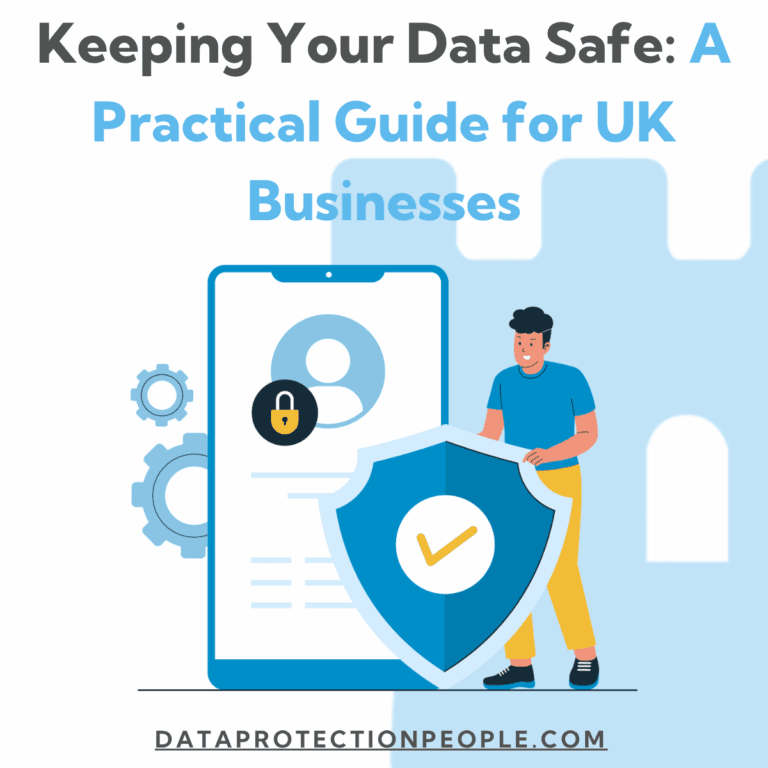Keeping Your Data Safe: A Practical Guide for UK Businesses
From regular GDPR audits, internal controls and staff training to appointing a dedicated DPO, here’s how to make data protection straightforward.

Data breaches and GDPR compliance can feel overwhelming for UK businesses. The cost of getting it wrong is significant, i.e. fines, reputation damage and the potential for massive business disruption.
Protecting your company’s data is both a legal and operational necessity, but it doesn’t have to be complicated. In this guide, we will look at how regular audits, strong internal controls and even a dedicated role within your organisation can make data protection straightforward.
Understand Your Data Landscape
The first step to protecting your company’s data is simply understanding what you’re working with. The questions you need to answer are:
- What kind of personal data does your company hold?
- Where is it stored?
- Who has access?
If you can’t answer these questions confidently, undertaking a data mapping project will help you identify and understand the data that you collect, hold and store.
Carry Out Regular GDPR Audits
A GDPR audit is a review of your organisation’s data handling practices to assess whether they are compliant with the UK General Data Protection Regulations. It’s essential to ensure that your business meets its legal obligations, mitigates any risks of data breaches and implements necessary improvements.
Appoint a Data Protection Officer (DPO)
If your business carries out large-scale processing activities or is a public authority or body, then you need to hire a Data Protection Officer or outsource one.
A DPO monitors GDPR compliance, leads audits and acts as liaison with ICO. They also provide guidance to management and employees who handle data.
If you’re a small or medium-sized business, then outsourcing a DPO might be more cost-effective, more impartial and expert-led than hiring one in-house.
Strengthen Access Controls and Staff Training
One of the key measures you can take to keep your company’s data safe is implementing user access control. This means granting access to systems and data only to those who require it for their role. It also includes things like two-factor authentication and password control.
Regular training on data handling for all staff is also important, even if it’s just the basics, such as reporting incidents, phishing awareness and device locking.
Have a Breach Response Plan
Do you know what to do if you’ve suffered a data breach? If you don’t, you could inadvertently be making the situation worse. Quick detection and response can not only potentially reduce the scale of the breach, but it can also reduce ICO penalties and reputational damage.
Your DPO will help you manage any data breaches by assessing their severity, coordinating the response and notifying relevant authorities.
Stay Up-to-Date with Regulation and Technology
GDPR and data protection law are always changing, especially after Brexit, so it’s important to keep up to date with the latest legislative changes.
Technology can help you stay on the cutting edge of data protection, particularly in areas such as encryption, anonymisation and secure backups.
Your ongoing GDPR audits, along with your DPO’s responsibilities to monitor changes, should keep you informed.
Keep Your Data Safe with Data Protection People
Data protection is an ongoing business activity. With regular audits, internal controls and a knowledgeable DPO, you can keep your customers and your reputation safe.
We offer a range of services to help you keep your company’s data protected from cyber criminals and accidental data breaches, from an outsourced DPO to GDPR audits. Get in touch with us today.
